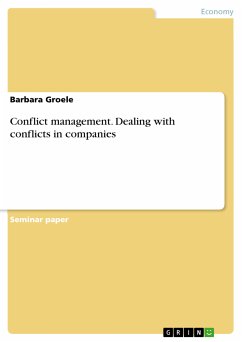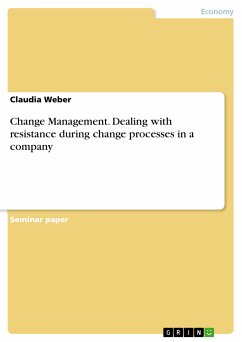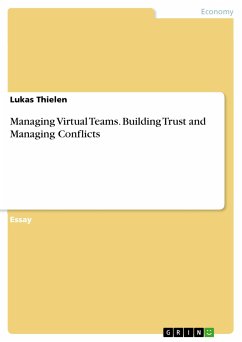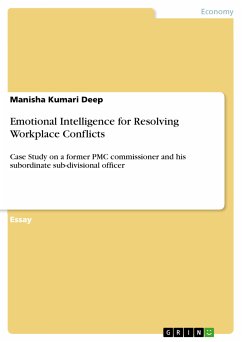Seminar paper from the year 2007 in the subject Business economics - Business Management, Corporate Governance, grade: 1,0, University of applied sciences, Neuss, course: Unternehmensführung im Mittelstand, language: English, abstract: Where people live and work together and want to achieve common goals, be it in the professional or private environment, conflicting interests and potential for conflict can arise at the same time. Conflicts are part of everyday life and are inevitable when people with different interests meet. They are side effects of every human coexistence. In today's age of increasing globalization, intensifying competition and internationalization, profit-oriented companies are also subject to a constant field of tension between pluralistic interests. Negative emotions are often associated with conflicts and conflicting interests, as they can lead to escalations, hardening and/or the postponement of one's own goals. In companies, conflicts and conflicting interests can have massive consequences for the company's success and thus also for cooperation, such as for example lockout, transfer and/or absenteeism. However, if the conflict opponents have negotiated their different interests and reached an agreement, conflicts can certainly also be used as a driving force. Accordingly, there are also opportunities in conflicts, e.g. for the beneficial further development of the company, the joint finding of an optimal solution and to increase entrepreneurial creativity. Due to these facts, it makes sense for companies to analyze conflicts, to deal with the advantages and disadvantages and to initiate appropriate measures.
Dieser Download kann aus rechtlichen Gründen nur mit Rechnungsadresse in A, B, BG, CY, CZ, D, DK, EW, E, FIN, F, GR, HR, H, IRL, I, LT, L, LR, M, NL, PL, P, R, S, SLO, SK ausgeliefert werden.









